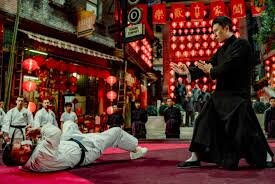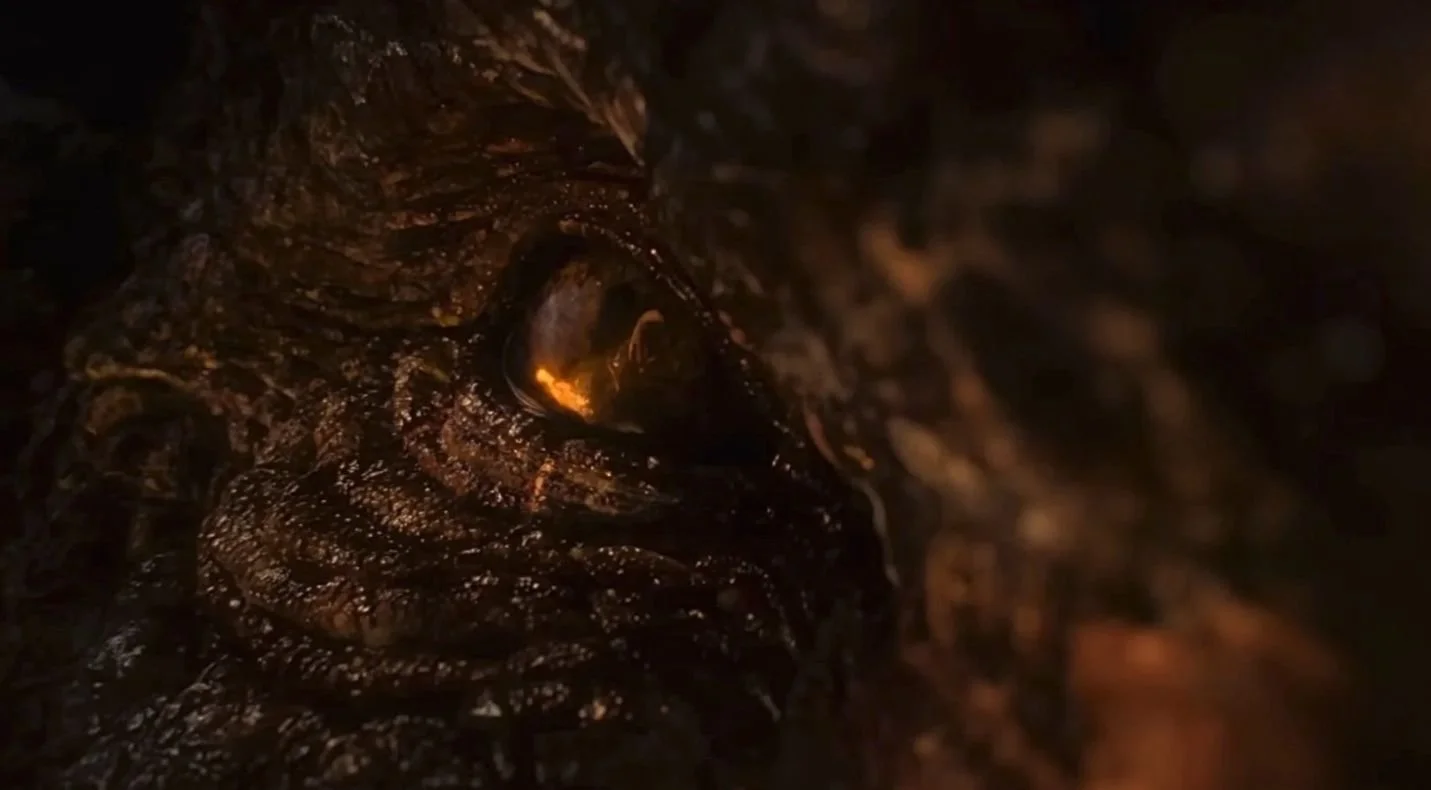Review - Ip Man 4
by Russell Brown, “The Opaque Senator,” GGR Contributor
There are many who may be unfamiliar with Ip Man, both the Chinese martial artist who originally trained Bruce Lee in the art of Wing Chun, and the many, many movies that have been based on and dramatized his life. With Ip Man 4, the final in the Donnie Yen-led quadrilogy, we come to the end of one of the more well known series of these movies.
First, a quick bit of history of the films. As with most entertainment, the movies took many liberties with Ip Man's life, so I will focus on the movies for this review. One thing I found very interesting about the Donnie Yen version of Ip Man was Yen's authenticity when presenting both the martial art of Wing Chun and Ip's mannerisms. Yen is practitioner of many martial arts, learning Tai Chi at a young age from his mother, a 6th dan black belt in Taekwondo, Jeet Kun Do, among many others. Two of Ip's real-life sons consulted on the fight choreography, and Yen himself trained with Ip Chun for 9 months earning proficiency in the art. This dedication to the role shows through impressively.
The first of the Ip Man movies focused on Ip's life during the 2nd Sino-Japanese War. This shows the end of Ip's time in the FoShan province before being forced to move to Hong Kong. The second is about his time in Hong Kong, when the British begin their cultural invasion of the land. The third features Ip Man as a borderline police officer working to thwart a gang issue, while also dealing with his wife's cancer diagnosis and another rival vying for his title as the greatest Wing Chun practitioner.
This brings us to Ip Man 4, the final movie in the saga. It is difficult to talk about the film and its themes, without first mentioning two things. The first is the current political situation in China. Yen and many of the filmmakers are pro-Chinese government in the protests going on there. This has led to some backlash with the film itself, but a unified Chinese front in the face of foreigners is a prominent theme that permeates throughout the film. It is unlikely these are mutually exclusive traits. Second, for those that follow martial arts and its theories, there has been a movement against many Chinese kung fu styles by MMA (mixed martial arts) practitioners. Through a quick search, you will see a number of YouTube videos out there now about so-called “fake” martial arts styles and schools. Tai Chi, Wing Chun and others martial arts styles are typically heavily targeted, and these videos feature real life match ups of supposed “masters” of these arts taking on true MMA fighters and getting beat fairly easily. This has also caused some outrage in China among its people. I mention this as well because there are a number of martial arts masters and styles featured in the film, and at several points in the movie they get beat by more modern karate as taught in the American military circa 1950. If you have interest, feel free to look at these issues a bit before watching the movie, and you will likely also see how these themes permeate the film.
Now, for the plot summary (spoilers ahead).
Ip has aged, and the film begins with him receiving a cancer diagnosis. Ip Man, both in real life and the movies, is a long time smoker, and throat cancer is ultimately what kills him. Ip's son is older in this movie and is causing problems, getting kicked out of school in Hong Kong. Ip Man, his wife dead and raising his son on his own, decides to go to the US to find a suitable school for his son; buoyed by an invitation from his most famous student, Bruce Lee.
Many challenges ensue once Ip arrives. Ip meets up with friends who also had moved to the States, particularly San Francisco, to start new lives and kung fu schools across Chinatown. Ip needs to have a letter of recommendation for his son to attend school abroad, so he meets with the local masters to get this. However, the masters are displeased with his student Bruce Lee teaching foreigners Wing Chun (this is a time before Lee moved beyond Wing Chun to create his Jeet Kun Do school of fighting). Ip informs the masters that he agrees his arts should be shared with the world at large, and the council, led by a Tai Chi master by the name of Wan Zong-hua (played by Wu Yue), decides not to give him the letter he needs.
One chief theme of the movie is that of racism. You see it in many different ways, but particularly with white Americans being against the influx of Chinese immigrants and foreigners. The dispute between Ip Man and the masters is racist in its roots. The various Chinese styles of martial arts are often sacred to native Chinese, and they feel these aren't ideas that should be taught to the outside world and should not be shared. Conversely, there is a lot of racism towards the Chinese people in San Francisco. This problem rears its head with Ip Man's encounter with Wan's daughter, Yonah. Ip goes to the school she is attending, when he happens upon Yonah being bullied and beaten up by a group of white classmates. Yonah does try to fight them off, and eventually leaves a good gash across the face of the girl who led the bullying against her, but this only escalates the situation and she is in danger of being seriously harmed. Ip sees this and intervenes to stop the bullying, injuring his hand in the process.
Ip accompanies Yonah home to keep her safe, where he again encounters Wan. Wan, thinking Ip did this just for the letter, challenges him to a fight for it. I will pause to say that in keeping with the stellar choreography of the previous films, the many fights in this movie are great, this one included. Their match is interrupted by an earthquake, so no winner is decided. Wan wants to continue the challenge another time, but Ip refuses, saying that he truly only cared for his daughters safety, and leaves without pursuing the match or the letter. The injured bully returns to her parents, her father happens to be a member of the INS, an immigration agency at the time, and they hold the Chinese association responsible for his daughter's injury, which leads to a host of problems since Yonah is the association chief's daughter.
Meanwhile, a student of Bruce Lee, currently serving in the military and training with Lee for 6 months, brings the idea up to incorporate some Chinese martial arts into the military's defense training. His commander, Barton Geddes, a not-so-subtle hardliner, offers that if the student can best their karate trainer Colin Frater in a match, he would consider it. The student is defeated but undeterred, and brings the idea up to his CO, showing footage of his master Lee in action. His CO allows for the idea to be further researched, angering Geddes. Geddes responds by pushing Frater to disrupt the martial arts association's festival, and defeat all the masters there, embarrassing the Chinese and stopping this from moving forward.
The festival occurs, Wan is detained by the bullied student's father, and Colin disrupts the festival, severely beating and injuring several of the masters. Ip Man intervenes when Frater nearly kills a female master, and dispatches Frater violently after several times trying to show him mercy in their fight. While this match is going on, Geddes convinces the INS to release Wan into his custody, so he can challenge Wan to a one-on-one match himself. Wan accepts. He fights well but is ultimately defeated by a much stronger and hardened Geddes, who breaks Wan's leg and brutally beats him almost taking his life.
Ip Man gets wind of this, and has Lee's student take him to Geddes to challenge him to a match. After faltering early, Ip Man wins, showing the efficiency of his martial arts and completing his life's pursuit of his art. To close, Wan offers him the letter, but Ip Man decides the US isn't for him or his son. Ip Man and his son reconcile, he reveals his throat cancer diagnosis to him and accepts his son's want to learn Wing Chun. The movie closes with Ip Man, now nearing death, having his son record his efforts on the wooden dummy, so his son can learn from it and have it as a reminder of the art. The movie closes on Ip's funeral, being attended by a saddened Bruce Lee.
The events of the martial arts masters being soundly defeated (in actuality, on multiple occasions) by Western MMA, but ultimately having their signature art of Wing Chun defeat all of its allies is in the spirit of the Ip Man movies for sure, but the number of styles and the brutality and lack of subtlety of the message is what leads me to believe the elements of the final fights are a microcosm of the general argument against Chinese martial artists. Ip Man, the one who stands above the rest of the masters, and is battle hardened himself, is the winner at the end; embodying many core Chinese philosophies. It's almost as if the film is encouraging practitioners of the arts to remember skill and understanding of the arts is only a small part of the equation, and is different from fighting prowess.
So, my thoughts on the movie? I very much enjoyed it. This was the first movie I had seen after Star Wars: Rise of Skywalker. Ip Man 4 was a much better movie, with a full story, great, practical action, and it solidly completes the series without gaping holes (not that I did not enjoy elements of the recent Star Wars movie, but I found it lackluster in many departments). This movie was a reminder to me of the benefits of good story telling.
This series of movies stands out to me for many reasons. I'm a sucker for action movies, especially ones that feature unique martial arts and practical choreography. But the thing that resonates for me about Ip Man is that he is, as a function of all of these movies, a Superman type character. Infallible, basically unbeatable, embodies so much of the spirit of a country and culture. The Ip Man movies are how you correctly write a Superman-type character. In the first movie, you reveal the background of the character, show off his immense talent and skill, but put him in a situation where his power is meaningless in many aspects, and show how the character develops as a result. The second movie placed the character against another unstoppable force to collide with, while also having him deal with other problems his strength cannot always solve. The third movie places him against his clone of sorts (another Wing Chun master who knows the art nearly as well as he does, but also represents a past version of himself that did not understand the importance of family and balance). And the 4th movie gives him his ending timeline and shows how his character traits show through despite his challenges, and how he is still continuing to learn about himself and his arts and family until the very end of his life.
I read an article recently that DC writers are unsure how to move forward with the character of Superman due to his unstoppable nature. “How do you make an unbeatable God among men interesting?” one of the writers was quoted as saying. Well, if they are looking for template, they should certainly watch the Ip Man quadrilogy. As should you. Each time I re-watch them, or a fight scene from them, I am reminded of their many strengths in choreography, storytelling, and culture.


















EIC Mike Lunsford gives his review and commentary on the HBO Max documentary “Pee-wee as Himself.”